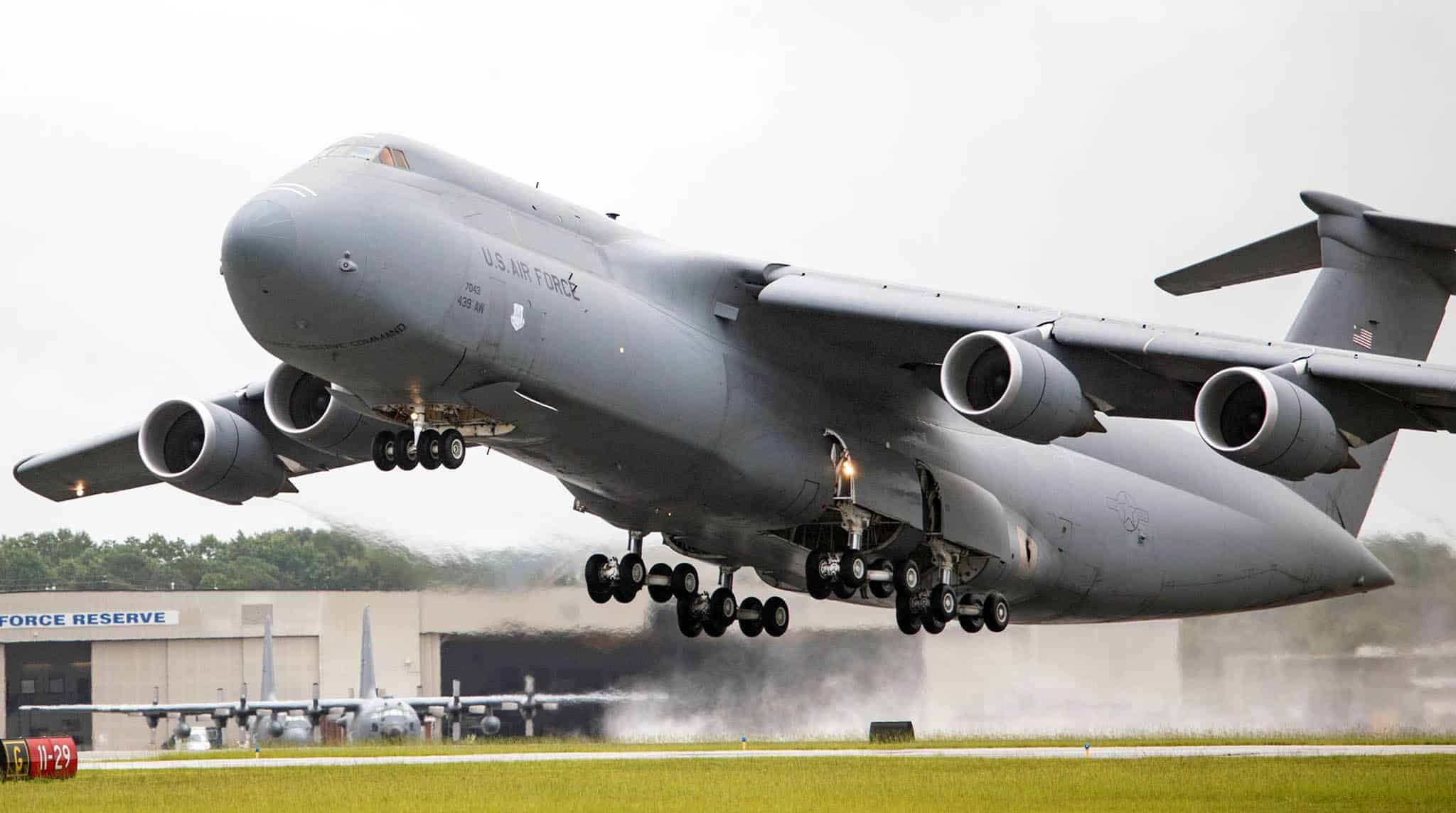The first flight of the Lockheed Martin C-5 Galaxy took place on June 30, 1968, with an audience including President Lyndon Johnson. Now, 50 years later, the Super Galaxy is still going strong.
Today, the Air Force and Lockheed Martin finished upgrades in Marietta, Georgia, to the final aircraft under the C-5 Reliability Enhancement and Re-engining Program, or RERP. The upgrades include engine replacements, landing gear and structural modifications. Following the changes, the aircraft carry the designation of C-5M Super Galaxy.
“This is a huge milestone for our community. We have been modifying our C-5s through this RERP program for about 10 years now, and the results are staggering,” said Randy Hildebrandt, C-5M program manager at the Air Force Life Cycle Management Center. “Reliability is up, the aircraft is not breaking as often and the aircraft is able to get to its objective faster – often without having to stop for fuel and crew rest.”
The purpose of the improvements is to increase payload capability and access to communication, navigation, surveillance and air traffic management.
The Galaxy is the largest airlifter in the Air Force inventory and has flown in every conflict since Vietnam. It continues to provide help around the world with crews delivering everything from personnel, emergency relief supplies and medicine to fire trucks and industrial electrical repair vehicles.
Along the way the C-5M Super Galaxy has set 89 world aviation records, which is the most of any aircraft in history. With the upgrades, it will continue to provide support anywhere in the world.
“We are carefully planning how to continue modifying the aircraft with new parts and new capabilities that will take the aircraft to its full retirement age – it’s going to be around for a while yet,” Hildebrandt added.
With the final RERP production C-5M aircraft completing its check flight on July 25, and acceptance by the Air Force on Aug. 1, all 52 aircraft have now returned to their respective Air Mobility Command and Air Force Reserve Command units.










